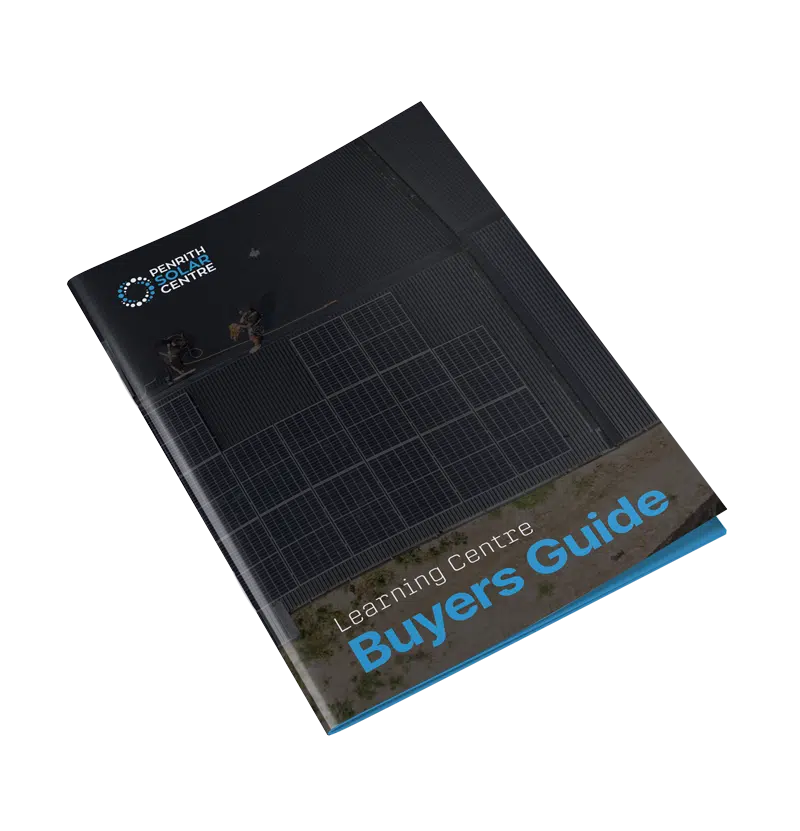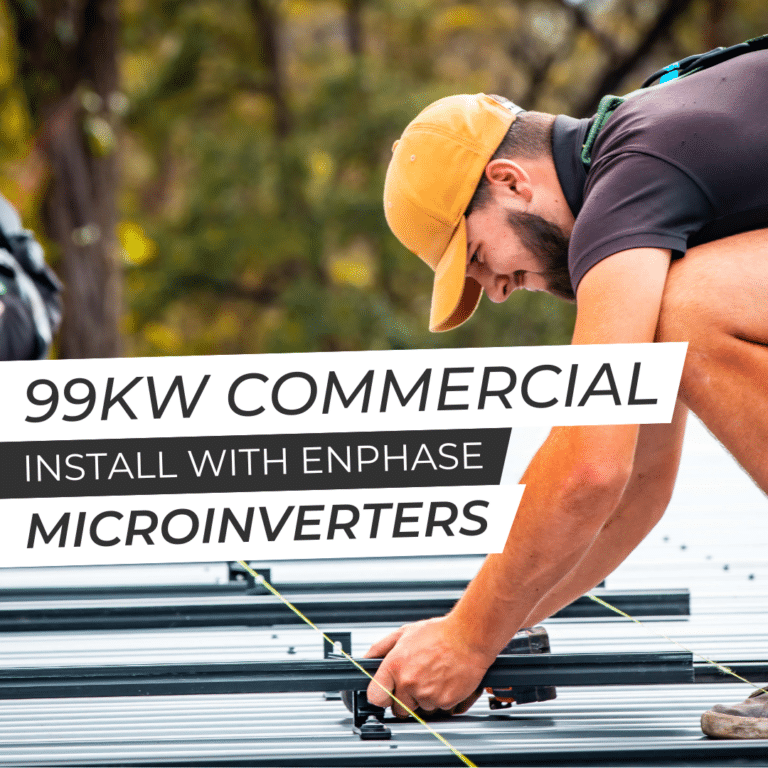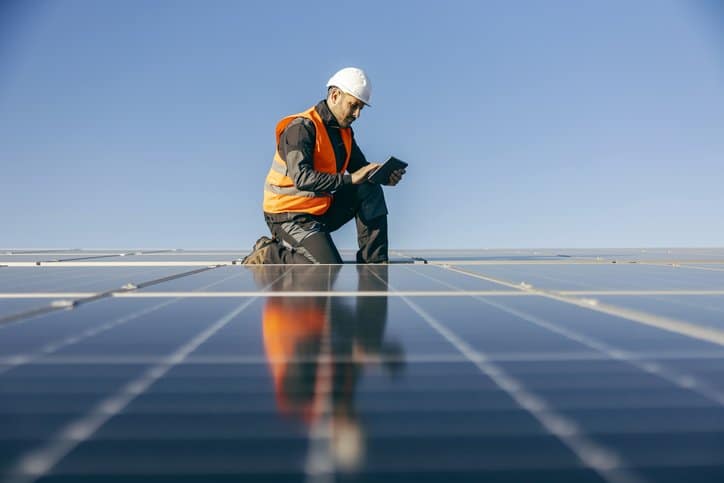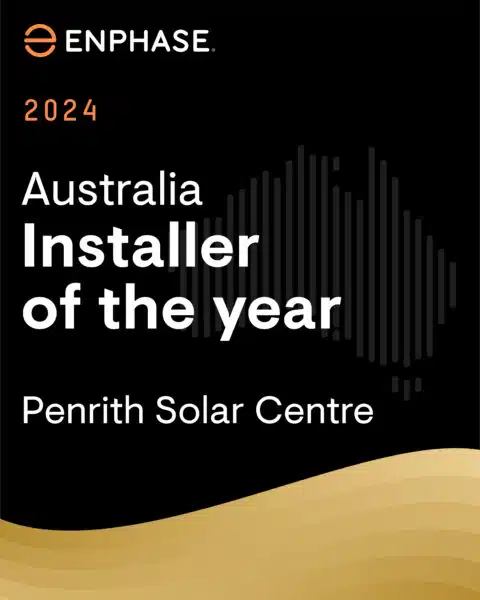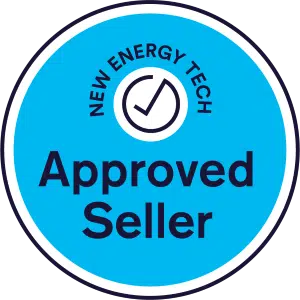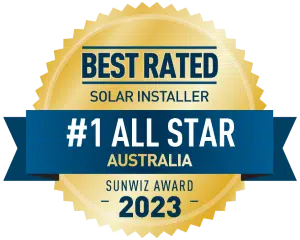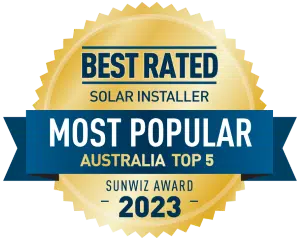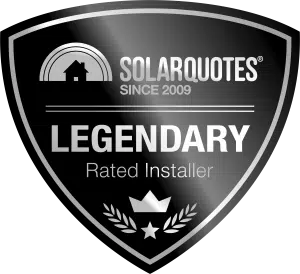
If you’ve started looking into solar panels for your home, you’ve probably noticed something confusing. Prices seem to be all over the place. One company quotes you one number, and another comes in much higher. It’s hard to know why solar panels cost so much or why prices vary from one company to the next.
You aren’t alone. Many people trying to make sense of solar pricing ask the same question. The truth is solar pricing depends on a lot of different factors. This can make it hard to know if you’re paying for quality or just overpaying.
At Penrith Solar Centre, we understand what affects the price of solar panels. We’ve been installing them for years. We’re here to walk you through different brands, how installation costs play a role, and how the size of the system affects the final price.
In this article, you will learn about the following:
- What Affects Solar Panel Prices?
- Solar Panel Quality vs. Pricing: Does Paying More Equal Better Panels?
- Solar Panel Installation Costs: Skilled Labour Is Essential
- Government Incentives and Rebates: How They Lower Your Solar System Costs
- How to Compare Solar Quotes and Find the Best Value
By the end, you’ll know exactly what makes solar panel prices vary and how to choose the right system for your budget.
What Affects Solar Panel Prices?
Solar panels might all look the same, but several key factors affect their prices. Understanding these factors helps you know why quotes can be so different.
Brand of Solar Panels: Not all solar panels are created equal. Some brands are known for high efficiency and long-lasting durability, while others are more affordable but offer fewer benefits.
What to look for:
Mid-range to premium brands may cost more upfront but often provide better performance over the years. They’re warranted for longer periods of time. This rather than the latest efficiencies is what we believe is the most important aspect of any solar panel purchase.
In contrast, cheaper brands often don’t last as long as mid-range to premium panels. Replacing equipment with shorter warranty periods should be factored into the final cost of your investment.
It might look and sound like a better deal but going with a cheaper panel might cost you more over time. They simply need to be replaced sooner.
Installation Costs: Labour plays a big role in the final cost of your solar system. If you choose an experienced installer with a proven track record, you’re likely to pay more for quality workmanship.
This isn’t an area where you want to cut corners. Skilled installers make sure that your system is set up correctly. This improves efficiency and safety in your system.
Many solar companies work within a solar sales/subcontractor installation model. One company sells the system and hires a subcontractor to install it. The biggest downside of this approach to installation is ambiguity when it comes to fulfilling warranties for repairing or replacing components. It might be difficult to repair or replace components if the subcontractor directs you to the sales company and vice versa.
Another thing to look out for is how your installer charges you for installation. Many sales/subcontractor installers charge by the panel. As the system size increases, the cost balloons up.
At Penrith Solar Centre, we have a fixed day rate. This gives our customers great value for larger installations that can be done in a day. For systems that are 10kW or larger, we offer a very competitive rate that’s difficult for sales/subcontractor companies to match because they charge by the panel. We’ll discuss installation a little more thoroughly a little later in this article.
System Size: The size of the system you choose also directly affects the price. A larger system with more panels will obviously cost more, but it will also produce more energy.
We know this sounds “sales-y” but if you have large energy bills, spending more on a larger system will offset those bills more effectively and pay for itself faster. While a larger system costs more, it will save you more over time. This is important for families with high electricity needs or those wanting to power their home fully with solar.
If you don’t have enough panels, your system will struggle to keep up with your bills in just a few years’ time. It’s all about balancing your power usage with the right number of panels. A solar consultant can walk you through this and create a customised quote for you based on your needs and goals with energy.
If you’re interested in learning a bit more about your energy needs, you might want to check out the following article titled, How Much Solar Do You Need?
Solar Panel Quality vs. Pricing: Does Paying More Equal Better Panels?
Not always.
We recommend that you not get too hung up on the efficiencies of different solar panels. Other components (like the inverter or microinverter) and the installation itself ensure greater efficiencies than the ultimate, most efficient solar panels out there.
Because the solar industry has evolved so quickly in the last decade, mid-range panels have efficiencies competitive with top-of-the-line brands. It’s okay to save a few bucks here by installing a mid-range panel.
That being said, the solar business is just like every other business out there: you get what you pay for. Part of the reason there’s such a wide variety in pricing for solar is that cheap systems exist. They’re not great, but you can purchase and install them if you like.
A premium price tag reflects a premium product.
Quality solar panels are more expensive because they offer better durability. We’re talking warranties. You should look for a manufacturing warranty of 25/30 years for parts/performance.
The warranty is what you should be most concerned with when it comes to solar panels. What will stay up on the roof, harvesting sunshine, for the longest guaranteed lifespan?
But, if your goal is to get solar power on a budget, cheap panels can still work. Most likely, they’ll need to be replaced sooner than the competition.
If you’re interested in learning more about premium solar panels, you might want to check out the following article titled, Everything You Need to Know About Aiko Neostar N-Type ABC All Black Solar Panels.
Solar Panel Installation Costs: Skilled Labour Is Essential
As we mentioned, the price of your solar installation isn’t just about the panels themselves – it’s also about the people installing them. Skilled, certified installers are more expensive, but there’s a good reason for that. Proper installation makes sure your system works safely and efficiently.
Here’s why this matters: solar panels are a long-term investment. If they aren’t installed correctly, you could face problems like electrical issues, poor system performance, or even damage to your roof. A poorly installed system might not take full advantage of the sunlight available, which could hurt your return on investment.
Here at Penrith Solar Centre, we take pride in our in-house installation teams. We’re a company of electricians. Our founder, Jake Warner, has an electrical contractor’s licence, as do all our head electricians, sales manager, and members of our service department.
Speaking of our service department, we partner with you when you choose us as your installer. Every installation has a 10-year workmanship warranty. We’re also able to monitor your system remotely and diagnose problems for you as rapidly as possible.
Solar panels and microinverters have a 25-year warranty. We put our name on everything we do and we’re proud of it. If there is an error on site, we are the ones who will fix it.
Now, we know you may not want to go on that journey with us. But please consider paying for experienced installers to avoid any risks. They know how to properly position your panels to capture the most sunlight, handle the wiring safely, and install all components so they work as they should.
In the long run, investing in skilled labour can save you money on repairs and ensure that you get the most power out of your system.
If you’re interested in learning a bit more about the importance of a good installer for your solar (the most important component of any system, seriously), you might want to check out the following article titled, In-house Installers vs. Subcontractors: Which is Better?
Click here for solar solutions.
Government Incentives and Rebates: How They Lower Your Solar System Costs
One of the best ways to bring down the cost of your solar system is by taking advantage of government rebates and incentives. In Australia, several programs exist to help homeowners make the switch to solar. These can significantly reduce the upfront cost of your system, making solar more affordable.
The Small-scale Renewable Energy Scheme (SRES) is one of the most well-known programs. It’s also known as the federal solar rebate.
Under this scheme, you can earn Small-scale Technology Certificates (STCs) when you install a solar system. The number of certificates you get depends on the size of your system, where you live, and when you purchased the system. Your installer sells these certificates to energy companies on your system’s behalf, which reduces your overall cost. We provide that discount to you and handle the rest.
Another rebate available in New South Wales is a battery rebate program.
Starting from November 1, 2024, homeowners and small businesses in New South Wales will be able to take advantage of new battery rebates through the Peak Demand Reduction Scheme (PDRS). This is excellent news for those planning to install a new battery or link an existing one to a Virtual Power Plant (VPP).
How the NSW Battery Rebate Works
When you install a battery that helps decrease or shift energy consumption during peak periods, it earns what’s known as a Peak Demand Reduction Certificate (PRC). For every 0.1 kW of energy conserved during peak hours, you generate one PRC. These certificates can then be sold to energy retailers, who are required to purchase them to meet their annual environmental obligations.
In simple terms, the more energy your battery is estimated to help save during peak times, the more PRCs you earn, increasing the long-term value of your battery system.
The rebate itself is given directly to you. Penrith Solar Centre applies it as an upfront discount at the time of your purchase, just like the STC scheme.
Additional Rebate/Incentive
If you don’t meet the requirements for the NSW battery rebate, there may still be other incentives available. For instance, connecting your battery to a Virtual Power Plant (VPP) could make you eligible for a VPP rebate, which offers rewards based on the energy your battery supplies back to the grid during periods of high demand. The VPP provider will manage this process for you.
Incentives can save you thousands of dollars, but it’s important to understand that these programs can change. Be sure to ask your installer about any current rebates or loans that apply to your system, so you don’t miss out.
If you’re interested in learning about the rebate for solar, you might want to check out the following article titled, Understanding the Federal Government Solar Rebate in Australia: The STC Scheme in 2024
click here to Start saving with solar today.
How to Compare Solar Quotes and Find the Best Value
Now that you understand the factors that affect solar panel prices, the next step is comparing quotes and finding the best value. Here are some tips to make sure you get the most out of your investment:
Look Beyond the Price: It can be tempting to go with the cheapest quote but remember that the lowest price doesn’t always mean the best value. Consider the quality of the panels, the reputation of the installer, and what’s included in the price. Some companies may offer lower prices by using cheaper panels or cutting corners on installation. In the long run, this could cost you more in repairs or lower energy savings.
Ask About Warranties: Warranties are a big part of the value you’re getting. Good-quality panels usually come with a longer warranty, often up to 30 years. The installer’s workmanship warranty is just as important. At Penrith Solar Centre, we offer a 10-year workmanship warranty. A solid workmanship warranty gives you peace of mind that if something goes wrong with the installation, it will be fixed without extra cost to you.
Check What’s Included in the Quote: Make sure the quotes you’re comparing include the same components. Some companies might include extras like monitoring systems, while others charge separately. Be clear on what each quote covers so you can compare them fairly. If one quote seems significantly lower, ask if it includes everything you need.
Don’t Forget Rebates and Incentives: As we mentioned earlier, government rebates and incentives can greatly reduce the cost of your solar system. Make sure these savings are included in each quote you get.
Balance Price and Quality: Finding the right balance between cost and quality is key. You don’t always need the most expensive system, but going too cheap can lead to problems. Look for a reputable installer who offers quality panels and a fair price. You don’t have to break the bank to do it. Often, a middle-range option may give you the best mix of performance, durability, and affordability.
If you’re interested in learning a bit more about the process of choosing components for your solar system, you might want to check out the following article titled, How to Shop for a Solar System.
Pricing Solar: What UV is What You Get
Solar panel prices vary for several reasons, including the brand of panels, the size of the system, and installation costs. By understanding these factors, you’ll be in a better position to compare quotes and choose the system that’s right for your home and budget. Choosing the right installer ensures that you get the most value in the long run.
At Penrith Solar Centre, we know the ins and outs of solar panel installation. We’ll make sure you get your rebate and get the best deal on components and equipment. We want to set you up with quality technology at the lowest possible price point. It’s what we do.
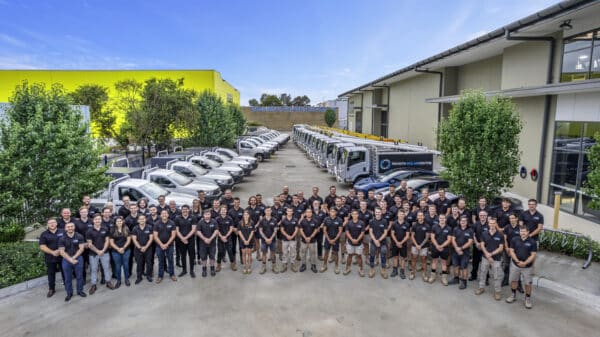
If you’re interested in learning a bit more about shopping for a solar system, you might want to check out the following article titled, 6 Mistakes to Avoid When Buying Solar.
